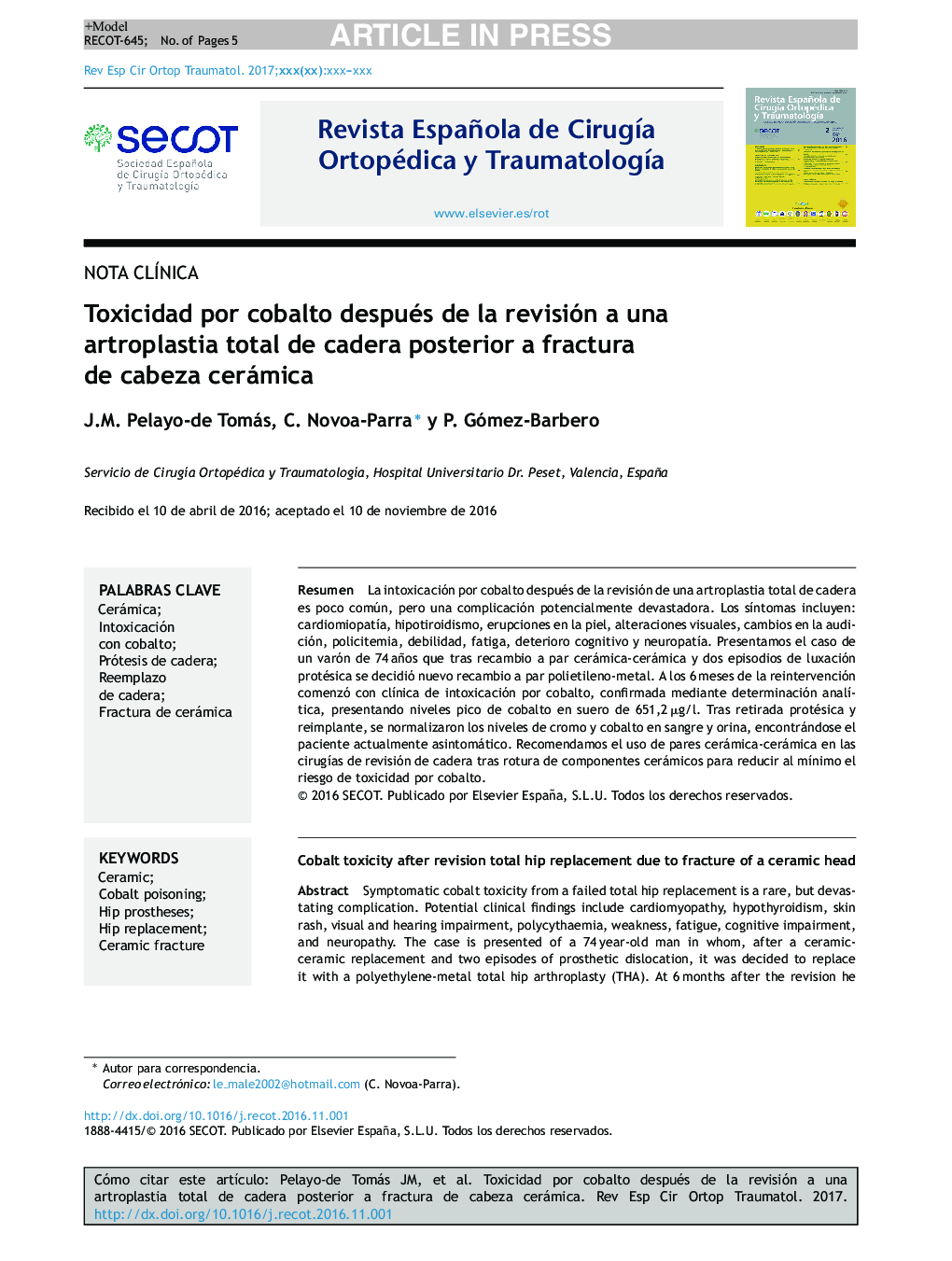| Article ID | Journal | Published Year | Pages | File Type |
|---|---|---|---|---|
| 5711592 | Revista Española de Cirugía Ortopédica y Traumatología | 2017 | 5 Pages |
Abstract
Symptomatic cobalt toxicity from a failed total hip replacement is a rare, but devastating complication. Potential clinical findings include cardiomyopathy, hypothyroidism, skin rash, visual and hearing impairment, polycythaemia, weakness, fatigue, cognitive impairment, and neuropathy. The case is presented of a 74 year-old man in whom, after a ceramic-ceramic replacement and two episodes of prosthetic dislocation, it was decided to replace it with a polyethylene-metal total hip arthroplasty (THA). At 6 months after the revision he developed symptoms of cobalt toxicity, confirmed by analytical determination (serum cobalt level = 651.2 μg/L). After removal of the prosthesis, the levels of chromium and cobalt in blood and urine returned to normal, with the patient currently being asymptomatic. It is recommended to use a new ceramic on ceramic bearing at revision, in order to minimise the risk of wear-related cobalt toxicity following breakage of ceramic components.
Keywords
Related Topics
Health Sciences
Medicine and Dentistry
Orthopedics, Sports Medicine and Rehabilitation
Authors
J.M. Pelayo-de Tomás, C. Novoa-Parra, P. Gómez-Barbero,
